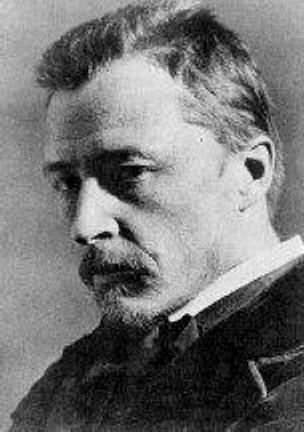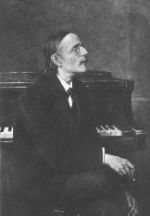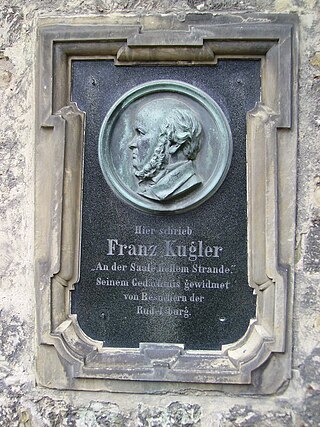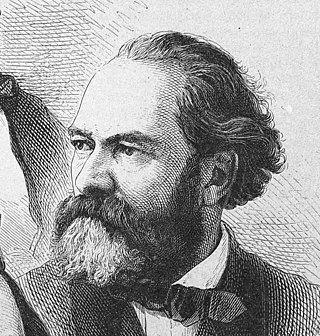
Hugo Philipp Jacob Wolf was an Austrian composer, particularly noted for his art songs, or Lieder. He brought to this form a concentrated expressive intensity which was unique in late Romantic music, somewhat related to that of the Second Viennese School in concision but diverging greatly in technique.

Paul Johann Ludwig von Heyse was a German writer and translator. A member of two important literary societies, the Tunnel über der Spree in Berlin and Die Krokodile in Munich, he wrote novels, poetry, 177 short stories, and about sixty dramas. The sum of Heyse's many and varied productions made him a dominant figure among German men of letters. He was awarded the 1910 Nobel Prize in Literature "as a tribute to the consummate artistry, permeated with idealism, which he has demonstrated during his long productive career as a lyric poet, dramatist, novelist and writer of world-renowned short stories." Wirsen, one of the Nobel judges, said that "Germany has not had a greater literary genius since Goethe." Heyse is the fifth oldest laureate in literature, after Alice Munro, Jaroslav Seifert, Theodor Mommsen and Doris Lessing.

John Dunstaple was an English composer whose music helped inaugurate the transition from the medieval to the Renaissance periods. The central proponent of the Contenance angloise style, Dunstaple was the leading English composer of his time, and is often coupled with William Byrd and Henry Purcell as England's most important early music composers. His style would have an immense influence on the subsequent music of continental Europe, inspiring composers such as Du Fay, Binchois, Ockeghem and Busnois.

The Province of Lower Silesia was a province of the Free State of Prussia from 1919 to 1945. Between 1938 and 1941 it was reunited with Upper Silesia as the Province of Silesia. The capital of Lower Silesia was Breslau. The province was further divided into two administrative regions (Regierungsbezirke), Breslau and Liegnitz.

"De Brevitate Vitae", more commonly known as "Gaudeamus igitur" or just "Gaudeamus", is a popular academic commercium song in many European countries, mainly sung or performed at university graduation ceremonies. Despite its use as a formal graduation hymn, it is a jocular, light-hearted composition that pokes fun at university life. The song is thought to originate in a Latin manuscript from 1287. It is in the tradition of carpe diem with its exhortations to enjoy life. It was known as a beer-drinking song in many early universities and is the official song of many schools, colleges, universities, institutions, student societies and is the official anthem of the International University Sports Federation.

Carl August Peter Cornelius was a German composer, writer about music, poet and translator.

Franz Theodor Kugler was an art historian and cultural administrator for the Prussian state. He was the father of historian Bernhard von Kugler (1837-1898).

Rudolf Löwenstein was a German author.

Silesian architecture is the name given to the constructions made in Silesia throughout time, and those by Silesian architects worldwide. The name is also applied to buildings made within its geographical limits before the constitution of Silesia as a duchy or before this name was given to those territories, and largely depends on the historical moment. Due to historical, geographic, and generational diversity, Silesian architecture has had a host of influences.

Krzeszów Abbey is a historical Baroque Cistercian monastery in Krzeszów, Lower Silesia, Poland.
Spanisches Liederbuch is a collection of translations of Spanish poems and folk songs into German by Emanuel Geibel (1815–84) and Paul Heyse (1830–1914). It was first published in 1852.

Maximilian (Max) Franz August von Forckenbeck was a German lawyer and liberal politician who served as Mayor of Berlin from 1878 until his death. His is considered one of the most important mayors of the city because of his prudent governing style during Berlin's rise as the capital of a unified Germany.

In the Western classical music tradition, Lied is a term for setting poetry to classical music. The term is used for any kind of song in contemporary German and Dutch, but among English and French speakers, lied is often used interchangeably with "art song" to encompass works that the tradition has inspired in other languages as well. The poems that have been made into lieder often center on pastoral themes or themes of romantic love.
Volkslied is a genre of popular songs in German which are traditionally sung. While many of them were first passed orally, several collections were published from the late 18th century. Later, some popular songs were also included in this classification.
Liederhandschrift, German for Manuscript of the Songs, is the German term for a manuscript containing lieder (songs) of the German Middle Ages, dating from the late 12th to the 15th centuries. Of particular importance are the Minnesang manuscripts of the 13th to 14th centuries.

The Lochamer-Liederbuch is an extensive collection of German songs at the transition from the late Middle Ages to the Renaissance. It dates from the mid-15th century and is regarded as one of the most important surviving collections of music from fifteenth-century Germany. Other names are Locheimer and Lochheimer Liederbuch.

Albert Martin Robert Radecke was a German composer and conductor.

Italienisches Liederbuch is a collection of 46 Lieder by Hugo Wolf, setting poems from Paul Heyse' Italienisches Liederbuch to music. The first 22 songs were composed between September 1890 and December 1891, and published in 1892. The other 24 songs were composed between March and August 1896, and published the same year. The time lag between the two volumes was caused by Wolf's long-proposed opera, Der Corregidor (1895), which might have been inspired by his personal love triangle with his friend's wife Melanie Köchert. The 46 lyrics of the songs were taken from an anthology of Italian poems by Paul Heyse (1830–1914), translated into German and published with the title of Italienisches Liederbuch in 1860. Despite Heyse’s diverse poetic selections, Wolf preferred the rispetto, a short Italian verse usually consisting of eight lines of ten or eleven syllables each, as a result of which the songs are short.

Joseph Ignaz Schnabel was a German composer and church musician.
Avigdor ben Simḥah ha-Levi Glogauer, also known as Avigdor Levi and by the acronym Alem (אל״ם), was a German Jewish grammarian and poet.














